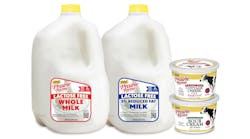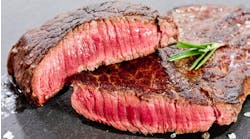One year after the dedication of what it claims is America’s first LEED Gold-certified food manufacturing plant, Kettle Foods (www.kettlefoods.com) says it’s seeing a significant financial return on the environmentally friendly plant.
“When we decided to go for green, or in this case gold, with LEED certification of our new factory, we knew it was the right thing to do,” Tim Fallon, Kettle Foods president North America, said on the anniversary in September. “The bonus is that making our potato chips in a more environmentally friendly way is also proving to be good business.”
The company designed the plant to meet the gold standards of the U.S. Green Building Council’s Leadership in Energy and Environmental Design (LEED) program.
- The factory, which produces thousands of bags of chips for shipment to the East Coast, actually began production on May 9, 2007. Economic benefits include:
Annual energy savings (gas and electric) of 20 percent, translating to an estimated cost reduction of $110,000 on natural gas and $51,000 on electricity. - Annual water savings of $34,000 due to reclamation systems capturing and reusing 3.4 million gallons of water.
- Monthly recycling of 2,300 gallons of waste oil with conversion to biodiesel, an alternative fuel used to power a company fleet of diesel engine cars called BioBeetles.
- Annual reduction of more than 3 million pounds of carbon dioxide emissions resulting from the elimination of shipping lines between Oregon and the Midwest.
The company also offsets 100 percent of the electricity used to operate both its Salem, Ore., and Beloit factories with wind power. The Beloit plant is home to 18 wind turbines mounted on the roof, which generate enough electricity to make 56,000 bags of chips per year.

